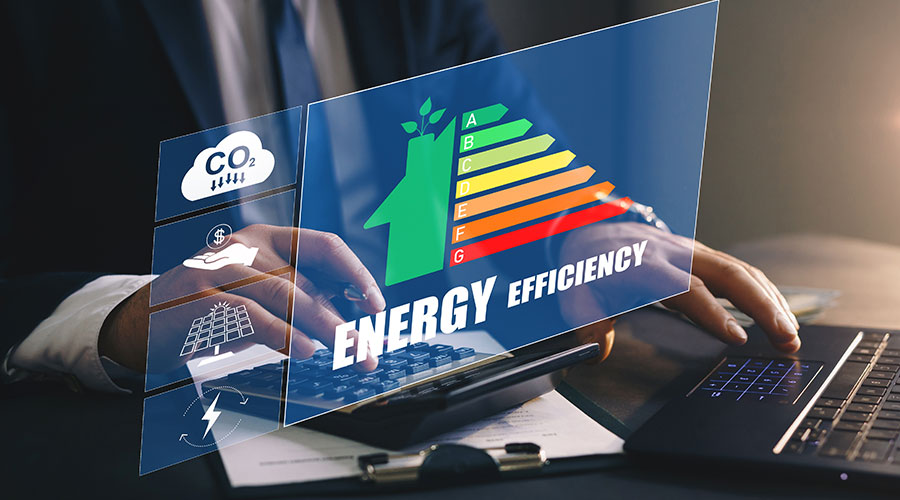Understanding Price and Contract Issues with Solar PPAs
Negotiate a fair price for power and understand all the contract provisions to ensure your PPA is successful.
To negotiate a fair price for the power that you will be receiving, you need to understand the full price you are presently paying. All power customers pay for energy usage (measured in kWh), but the prices charged for this energy likely differ based on time of day (on-peak or off-peak) and time of year (high season and low season). Larger buildings with greater electric usage also pay demand charges (measured in kW) for the point of greatest demand (again, these charges can differ between on- and off-peak and high and low seasons). By contrast, the solar company will likely charge the building a flat per kWh price for power from the solar project.
To determine whether the solar project’s pricing is fair, a building owner or facility manager should review at least one full year of electricity bills (two or three years would be ideal) and determine the effect of taking the output from the solar system on both the energy and demand charges. Given the output profile of solar generation, the system should allow the building to obtain significant savings on the higher-priced on-peak charges and potentially avoid or reduce an on-peak demand charge.
Building owners and facility managers should also become familiar with the concept of net metering, whereby for every kWh of solar electricity a building feeds into the grid, the owner gets a bill credit for one kWh of utility-generated electricity. Different states have different net metering programs. For net metering programs that require customers to be on time-of-use rates, excess power generated and sold by a solar system early in the morning (an off-peak time) will be compensated at a lower rate than energy used at, say, 7:00 PM, an on-peak time. But some net metering programs do not require a building to take power under a time-of-use tariff; in these cases, when the solar system overproduces and sends power to the grid, the owner receives power back at the same cost later in the day, when the sun has gone down.
Depending on the program, solar owners may still need to pay various charges, known as “non-bypassable charges,” that support grid maintenance and other programs.
In any event, a property owner planning to lease, rather than buy, should ensure that its PPA allows the owner to sell excess power back to the utility and keep the proceeds from that sale.
Contract issues
As noted, in a leasing situation, the parties will enter into a solar lease, whereby the solar company leases the rooftop space on which it will install the solar system, and a PPA, whereby the owner promises to buy, and the solar company to sell, all power from the installed solar system. There are a wide range of issues to consider in negotiating a PPA and solar lease. Although each project is different, some important issues to consider are:
• Term and extensions. While a 20-year term is typical, many companies will allow an owner to extend the term for anywhere between two and ten years. Ideally, the PPA and solar lease will give the property owner the option to extend the term at its election.
• Performance and timing. The PPA and solar lease should contain deadlines for construction of the solar facility and the ability for the owner to terminate if those deadlines are not met. Likewise, the property owner should ensure that the PPA and solar lease require the solar company to keep the system in good repair throughout the term, and properly insure the system in the case of damage.
• Termination. The PPA and solar lease should provide sound provisions that will allow an owner to terminate if the solar company is not meeting its obligations. If the solar company is performing, however, the PPA and solar lease will usually not allow a property owner to terminate the arrangement without paying a termination fee and compensating the solar company for removal of the system.
• Credits and excess power. Where renewable credits are available, the owner of the system (the solar company) will generally own the renewable credits generated by the system. The system owner will also be able to take advantage of investment tax credits and any state program funding. The parties should agree which of them will own and net meter the excess power created by the system.
• Panel degradation/performance guarantees. Although solar panels have improved in quality in recent years, they still experience degradation. Generally, panels degrade at the rate of about 0.5 percent per year, with thin film solar panels degrading faster. Make sure that the PPA contains a warranty on the panels, or a performance guarantee from the solar company, at the level of at least 75 to 80 percent over 20 years. Without this guarantee, the system may not deliver the amount of electricity expected after several years of operation.
• Buyout option. Ideally, the solar lease/PPA will contain an option for the owner to buy the solar system after a certain point in the term. (Due to tax and other implications, the solar company will often require that the option only be exercised after a certain number of years). This is an important provision that, if exercised, could enable a property owner to obtain power for years into the future.
• Special concerns for landlords. If the solar system will be providing power to areas used by residential or commercial tenants, the owner or manager may also consider alternate pricing arrangements, where the common owners are charged a different rate than tenant occupied areas. Regardless of the rates charged, however, the owner may need to retain an electric billing servicer that allocates electricity among the units and bills and collects from tenants for the energy provided.
Solar systems can provide lower cost, clean energy to a wide range of properties. Partnering with the right solar company under a fair contract can provide great benefits to property owners.
Beth A. Fox is a partner in the energy practice group of the law firm Manatt, Phelps & Phillips, LLP. She has significant experience advising on renewable and conventional energy and energy storage, and regularly advises real estate professionals on solar projects. She can be reached at bfox@manatt.com.
Email comments to greg.zimmerman@tradepress.com.
Related Topics:














